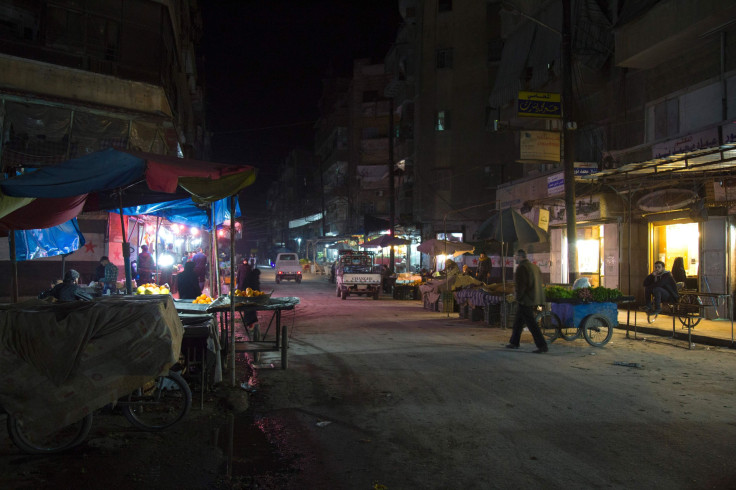Syria Mostly Calm As US, Russia-Brokered Ceasefire Comes Into Effect

Almost all fighting in Syria came to a halt Saturday after a truce formulated by U.S. and Russia and accepted by Syrian President Bashar Assad came into effect. The accord had called for a cessation of hostilities, with the United Nations terming it the best hope since the civil war began five years ago in Syria.
Firing in the suburbs, capital of Damascus and the northern city of Aleppo stopped at the stroke of midnight Friday, making it the first break in the five-year-long civil war, which has displaced over half the population in the country and has left about 270,000 dead, Agence France-Presse (AFP) reported. The truce deal, which came into effect a day after Russian warplanes conducted airstrikes targeting rebel stations, does not include jihadi groups. The agreement, if it holds, would be the most successful peace effort in the war so far, Reuters reported.
“Let's pray that this works because frankly this is the best opportunity we can imagine the Syrian people has had for the last five years in order to see something better and hopefully something related to peace,” Staffan de Mistura, a U.N. Syria envoy, said during a news conference in Geneva Saturday, according to Reuters. However, he added that he expected occasional breaches of the agreement and asked the parties involved to avoid escalation and show restraint.
Mistura also said, according to AFP, that peace talks will resume March 7 if the ceasefire hold and if more aid comes through. He added that a system has been set up to deal with any violations of the truce and a special task force, formed by the 17-nation International Syria Support Group, will meet in Geneva Saturday to “monitor and check” the conditions on ground. Mistura added, according to AFP, that any violations should be “quickly brought under control” and added that a military operation should be the “last resort.”
However, early reports of violence came in after a rebel group in the northwest part of the country claimed that three of its fighters were killed while fighting against an attack by government forces, just hours after the ceasefire began. While the spokesman called it a breach of the agreement, Syrian military was not available for comment, Reuters reported.
The state media in Syria also said Saturday, according to Reuters, that two people were killed and several people injured after a car bomb exploded near the entrance of Salamiya town, which lies east of Hama city. However, a report by Syrian Observatory for Human Rights suspected that the attack was by the Islamic State group.
The Syrian government and Moscow have so far said that they will respect the agreement but will continue to fight the Nusra Front and ISIS, with moderate rebels left wondering if that could be used as a cover for attacks on them. Critics have also questioned the effectiveness of the truce when the ISIS and Nusra Front are not included in it.
“There is calm. Yesterday at this time there were fierce battles. It is certainly strange, but the people are almost certain that the regime will breach the truce on the grounds of hitting Nusra. There is the sound of helicopters from the early morning,” a rebel fighter, who confirmed to Reuters that a ceasefire was in place, said.
The truce deal was brokered by the U.S. and Russia and just an hour before the it began, the U.N. promised unanimous support for the truce.
© Copyright IBTimes 2024. All rights reserved.












